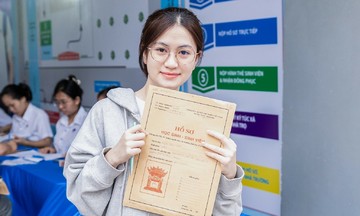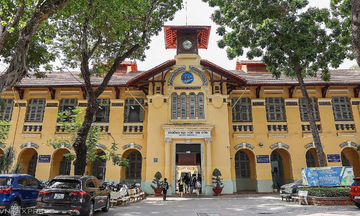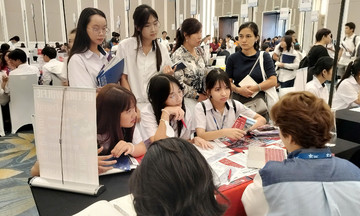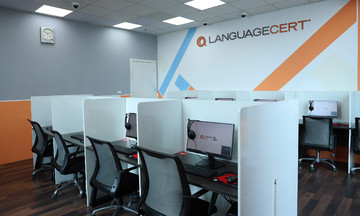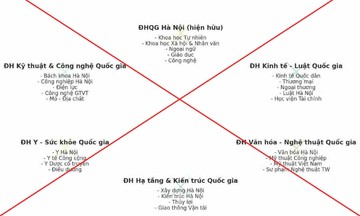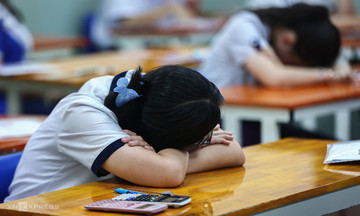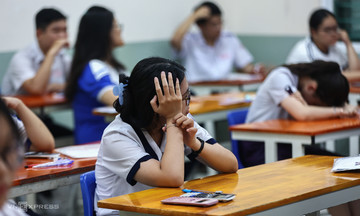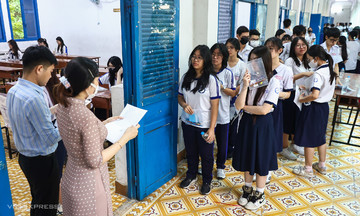The Politburo's resolution on breakthrough development in education and training was announced on the evening of 26/8.
The resolution emphasizes that education and training, along with science and technology, are top national policies. However, education and training have not yet become key drivers for the country's breakthrough development.
Some limitations include unequal access to education across regions, inadequate teaching staff, facilities, and classrooms in many areas, and shortcomings in educational content and curricula. In addition, negativity and formalism in education are still prevalent.
At the university level, the system is fragmented and outdated, failing to meet the demands of high-quality human resource training and scientific research, especially in key sectors and fields.
According to the Politburo, the main reason for these shortcomings is the lack of awareness and decisive implementation of the viewpoint that education and training are "top national policies" and "the undertaking of the Party, the State, and the entire population".
Furthermore, management and development thinking in education is slow to innovate, and concepts of autonomy and socialization in education are not suitable. Investment in education remains low, and resource allocation and utilization policies are inefficient. Policies for teachers are also inadequate.
In the context of comprehensive global changes, especially with digital technology and artificial intelligence reshaping education, every nation must redefine its vision and strategies for future educational systems.
Vietnam faces a historic opportunity for breakthrough development, making the development of human resources crucial and urgent. This requires a breakthrough in education and training.
Based on this reality, the Politburo has directed a breakthrough in education and training development.
Vietnam's education system is targeted to be among the world's top 20 by 2045.
The Politburo has set the goal of Vietnam having a modern, equitable, and high-quality national education system, ranking among the top 20 countries globally by 2045.
A nearer-term goal is that by 2030, the country will achieve universal pre-school education for children aged 3 to 5 and compulsory education through lower secondary school. At least 85% of people of the appropriate age will complete upper secondary education or its equivalent, with initial results in improving technology, artificial intelligence, and English language skills.
At the university level, human resource training needs to meet the requirements for Vietnam to become a developing country with modern industry and upper-middle income.
Specifically, the network of higher education and vocational education institutions will be reorganized and upgraded so that 100% of universities meet national standards and 20% receive modern investment comparable to developed countries in Asia.
The percentage of people of the relevant age group enrolled in post-secondary education will reach 50%, with the percentage holding college or university degrees or higher reaching 24%. At least 35% will study basic science, engineering, and technology, including at least 6,000 doctoral students and 20,000 students in gifted programs.
Another objective is to elevate universities into centers of research, innovation, and entrepreneurship for the nation and regions, recruiting at least 2,000 excellent lecturers from abroad. Universities need to increase their international scientific publications, revenue from science, technology, and innovation by an average of 12% annually; and patent applications and granted patents by 16%.
The aim is for at least eight Vietnamese universities to be among the top 200 in Asia and at least one among the top 100 globally in certain fields by 2030.
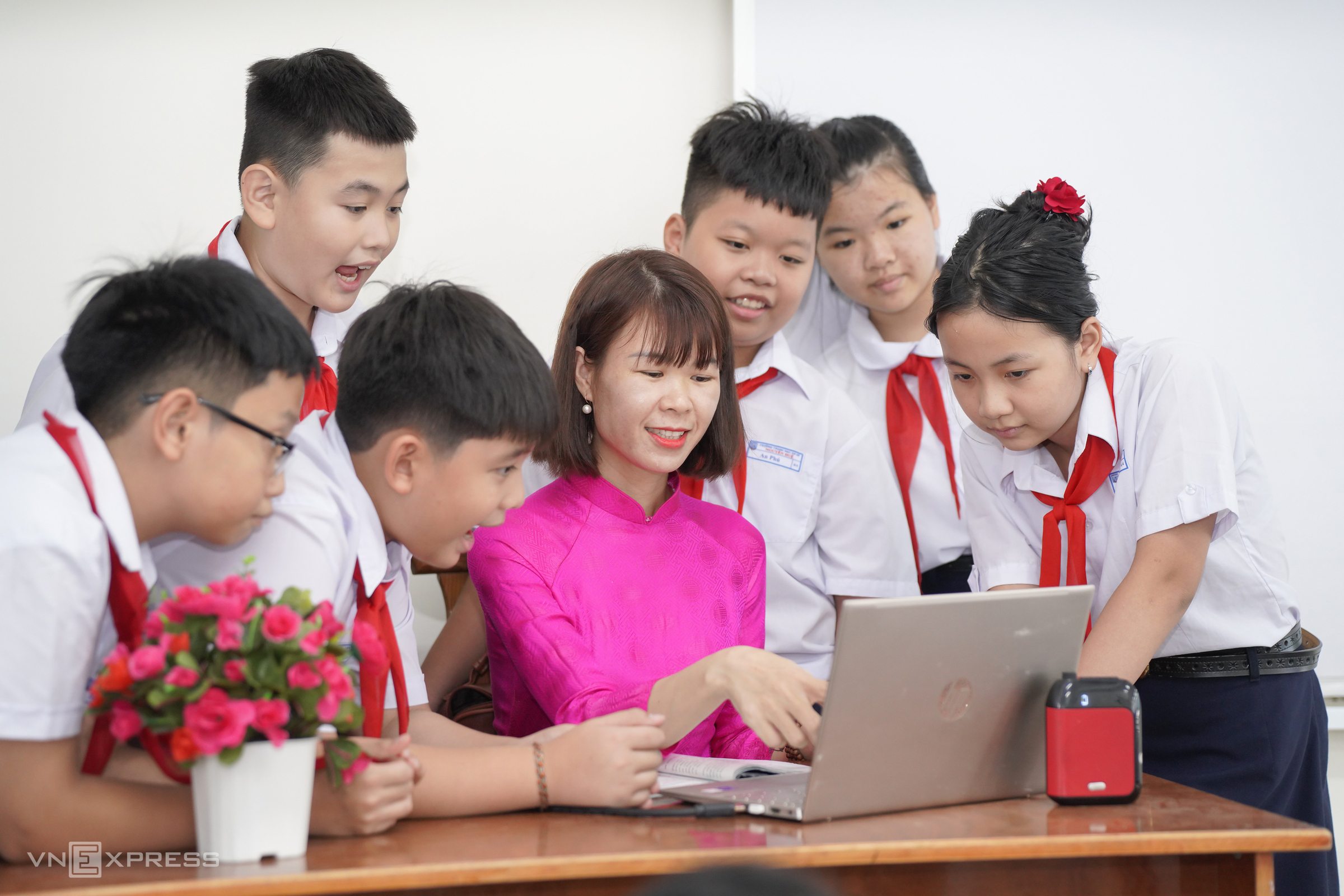 |
Students and a teacher at Nguyen Hue Lower Secondary School (Da Nang City) during a class in 11/2024. Photo: Nguyen Dong |
Students and a teacher at Nguyen Hue Lower Secondary School (Da Nang City) during a class in 11/2024. Photo: Nguyen Dong
Increasing teacher allowances and education spending
The Politburo stated that special, preferential policies are needed for teachers, including raising occupational allowances for pre-school and general education to a minimum of 70% for teachers, 30% for staff, and 100% for teachers in disadvantaged areas. The education sector will develop appropriate policies to attract talented individuals from outside the sector to participate in teaching and training.
Higher education must ensure full and comprehensive autonomy for universities, regardless of their level of financial autonomy. State budget allocation will be based on mission, quality, and effectiveness; priority will be given to assigning tasks in key sectors and fields based on output results.
Expenditure on education and training will reach a minimum of 20% of the total state budget, with investment expenditure reaching at least 5% and higher education expenditure at least 3%. Over the past 10 years, spending on education and training has only been at 15.7-19.1%.
The Politburo also directed the expansion of financial support policies and preferential credit for learners; and the development of a gifted education project, prioritizing basic science, engineering, and technology.
Regarding facilities, priority will be given to allocating cleared land, allowing flexible conversion of land use purposes to educational land; and prioritizing surplus state agency headquarters after rearrangement for educational institutions. Domestic schools will be exempt from land use fees, have reduced land rent and land taxes, and public and non-profit private schools will not be subject to corporate income tax.
Vietnam will also establish strong mechanisms and policies to encourage organizations and businesses to invest in education development; promote public-private partnerships; and foster collaboration and linkages between higher education, vocational education, research institutions, organizations, and businesses both domestically and internationally.
Providing a unified national textbook set
Among the tasks and solutions, the Politburo called for strengthening comprehensive education in morality, intellect, physique, and aesthetics, forming a value system for Vietnamese people in the new era; comprehensive digital transformation, popularization, and application of digital technology and artificial intelligence.
The education sector needs to enhance education in ideology, tradition, morality, physical education, aesthetics, career orientation, and soft skills; increase the duration of science, technology, informatics, and arts subjects; and research incorporating knowledge of digital literacy and artificial intelligence into general education programs.
The Politburo directed a review and assessment of the implementation of the General Education Program; and ensured the provision of a unified national textbook set. By 2030, textbooks will be provided free of charge to all students.
"Shifting strongly towards modern and active educational methods, enhancing self-study, creative experiences, guiding students to develop independent thinking and problem-solving skills; continuing to innovate testing and assessment methods to ensure honest evaluation of learning and teaching outcomes; and implementing synchronous solutions to overcome the widespread situation of extra tutoring and extra learning," the resolution stated.
Dissolving substandard universities and developing 3-5 elite universities
The Politburo requested the urgent development of a strategic framework for higher education development. Implementing the arrangement and restructuring of universities; merging and dissolving substandard institutions; eliminating intermediate levels; researching the merger of research institutes with universities; and researching the transfer of some universities to local management.
In the future, universities need investment to upgrade facilities and laboratories, and to build excellent training and research centers at key universities and teacher training institutions.
The Politburo also directed the establishment of special, outstanding mechanisms to develop 3-5 elite universities following the model of world-class research universities, training national talents. Priority will be given to allocating funding for scientific research, especially basic research linked to postgraduate training at these universities.
The planning and construction of high-tech university urban areas is encouraged. The education sector also needs to strongly promote the development of universities following the model of innovative universities and new-generation technology universities, becoming leaders in the regional innovation ecosystems; and establish mechanisms to support lecturers and students in entrepreneurship.
Other solutions were proposed to develop higher education, such as increasing support for lecturers to pursue advanced studies domestically and internationally; attracting excellent lecturers from abroad with outstanding incentives; expanding the implementation of gifted education programs and postgraduate training linked to scientific research and innovation.
The resolution also mentioned developing a project to reform university admissions towards accurately assessing learners' abilities, ensuring unified control of input standards and strict control of output quality. Strengthening quality management linked to appropriate support policies for doctoral training, training in pedagogy, health, law, and key sectors; and strictly regulating doctoral studies for officials and civil servants.
Full text of Resolution 71
Duong Tam





